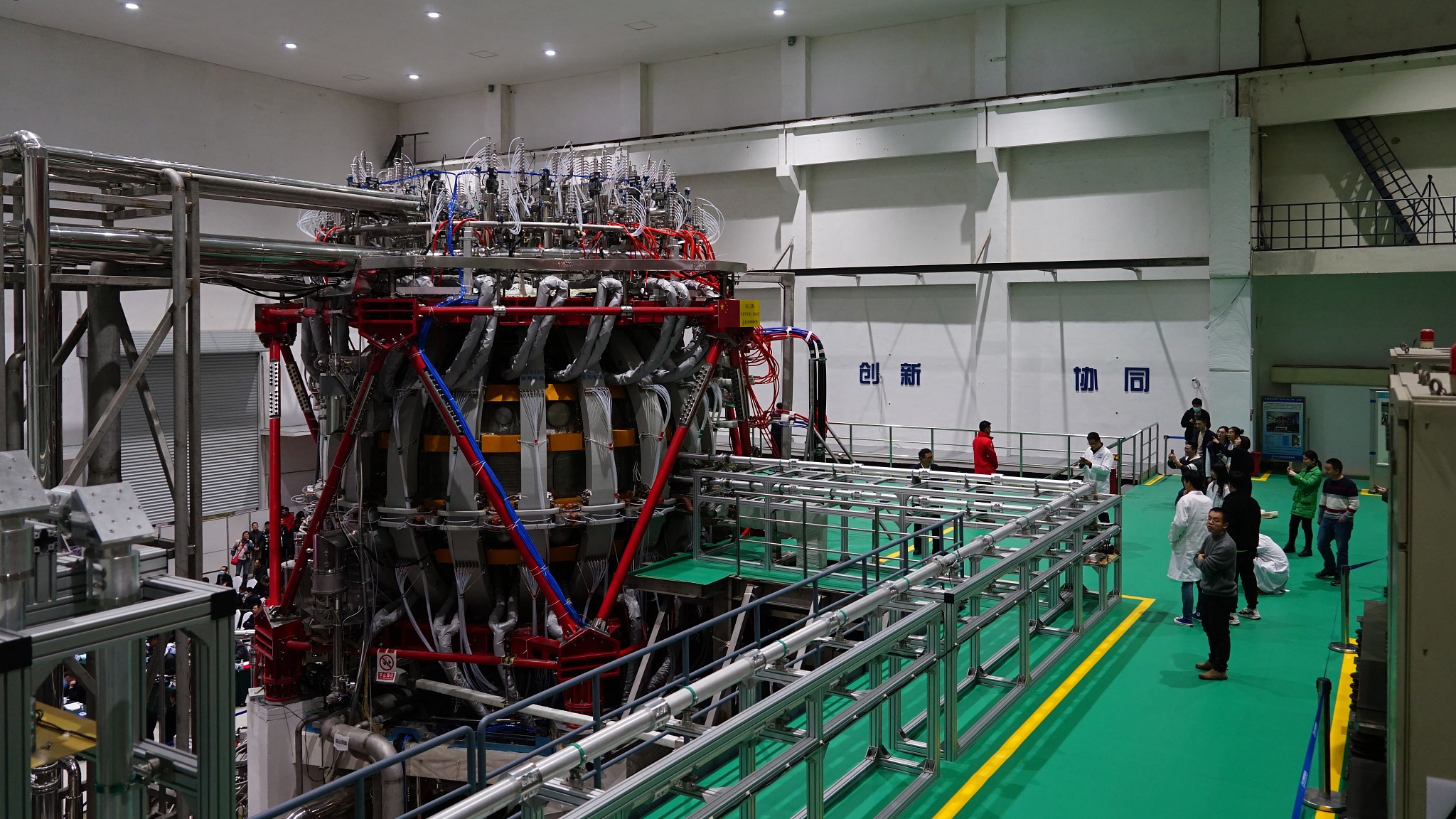
The HL-2M Tokamak, China's new-generation "artificial sun" put into operation, Chengdu, Sichuan Province, December 4, 2020. /CFP
The HL-2M Tokamak, China's new-generation "artificial sun" put into operation, Chengdu, Sichuan Province, December 4, 2020. /CFP
The HL-2M Tokamak, China's new-generation "artificial sun," went into operation on Friday and has achieved its first plasma discharge, according to the China National Nuclear Corporation (CNNC).
Designed to replicate the natural reactions that occur in the sun using hydrogen and deuterium gases as fuels, the apparatus in Chengdu, southwest China's Sichuan Province, will provide clean energy through controlled nuclear fusion, said the CNNC.
The self-developed device is the country's largest in scale and highest in parameters, with a more advanced structure and control mode than its predecessor, the HL-2A Tokamak.
It is able to generate plasma hotter than 150 million degrees Celsius and is expected to greatly enhance the research and development of key technologies in plasma physics research in China.
"The energy confinement time of international tokamak devices is less than one second. The shot discharge duration of the HL-2M is around 10 seconds, with an energy confinement time of a few hundred milliseconds," said Yang Qingwei, chief engineer of the HL-2M at the Southwestern Institute of Physics under the CNNC.
The artificial sun will provide key technical support for China's participation in the International Thermonuclear Experimental Reactor project and frontier research fields including flow instability and magnetic phenomena of ultra-high temperature plasma, according to Yang.
Source(s): Xinhua News Agency

